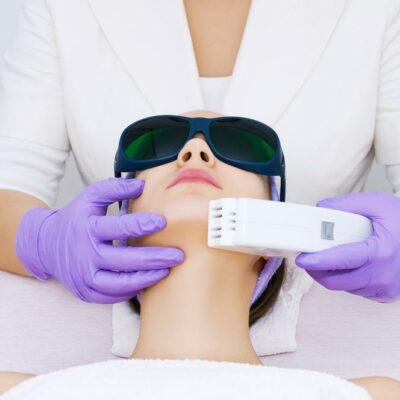
Know about the potential side-effects of Botox
Botox is primarily used to treat various muscular conditions. Typically, Botox cosmetically removes wrinkles by temporarily paralyzing the muscles. Botox is produced from a neurotoxin called botulinum toxin which is found in the bacterium clostridium botulinum.
Botox is termed as a powerful poison. However, when it’s used correctly, it can be helpful in several health conditions. In addition to facial treatments, botox can also be used in the treatment of excessive sweating, migraines, muscular disorders, and some bladder and bowel disorders.
1, Potential side-effects of Botox
Botox is usually given at the site of the condition that needs to be changed or rectified. Hence, it has been found that the major side effects primarily occur in the injected area. A few side effects which are observed across the injected area include redness, bruising, infection, and pain.
When Botox is used for relaxing muscles, it leads to various minor and major side effects. These side effects include dizziness, mild difficulty in swallowing, etc. Further, it can also lead to various respiratory infections such as cold or flu, pain, nausea, headache. Weakness in the muscles is also observed as a prime side effect of Botox. Besides, botox injections lead to various vision-related disorders; these include:
- Double vision
- Drooping or swollen eyelid
- Irritation of the eye
- Dry eyes
- Tearing
- Reduced blinking
- Increased sensitivity to light
If any of these vision-related disorders caused by Botox worsen, get the help of your doctor without any delay.
When Botox is prescribed to prevent migraines, you might experience a few common side effects that include headache, neck pain, and drooping of the eyelid.
In case, Botox is being used to treat the condition of excessive sweating, it can lead to certain side effects which include non-underarm sweating and various respiratory infections such as headache, flu or cold, fever, neck or back pain, and anxiety.
Botox is also prescribed to treat an overactive bladder. In this case, the potential side effects can include urinary tract infections, burning sensation when urinating, painful urination, or difficulty in urinating, and fever.
You need to keep in mind that a doctor primarily prescribes Botox because he has judged that the benefit of Botox to you is greater than the risk of the potential side effects. It has also been observed that many people who have been using Botox have not experienced any major side effects.
Any critical allergic reaction to Botox is rare. However, in some cases, a certain allergic reaction can occur. Such reactions include itching or swelling, especially on the face, tongue or throat, rashes, severe dizziness, and trouble breathing.
2. What precautions can be taken?
If your doctor has prescribed Botox, you can opt to take certain precautions to reduce the severity of the side effects.
- Inform your doctor if you are allergic to it or if you have any other allergies.
- Do not hesitate to inform the doctor about your complete medical history.
Keep in mind that being alert is always helpful.


